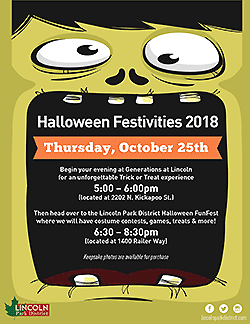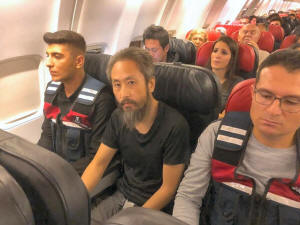|
Rice balls for Japan hostage as he
returns home from Syrian 'hell'
 Send a link to a friend
Send a link to a friend
 [October 25, 2018]
By Kiyoshi Takenaka and Elaine Lies [October 25, 2018]
By Kiyoshi Takenaka and Elaine Lies
TOKYO (Reuters) - A 44-year-old Japanese
freelance journalist returned home on Thursday to rice balls cooked by
his mother but an uncertain future more than three years after militants
in Syria captured him in what he described as a physical and mental
"hell".
Jumpei Yasuda, who quit his job as a reporter on a Japanese newspaper to
cover the Iraq war in 2003, arrived in Tokyo from Turkey, rekindling
debate in Japan about reporting from war zones that some see as reckless
adventurism and others as courageous journalism.
Television footage showed a gaunt-looking Yasuda walking down stairs to
a waiting car at Narita airport for a short ride to another airport
building.
To reporters' calls of "Welcome home" he simply nodded with a strained
smile as he disappeared down a corridor to where his family waited.
Later, his wife, a singer known as Myu, bowed deeply and apologized to a
packed news conference at which Yasuda did not appear.
"He would like to apologize for causing a fuss and making people worry
about him, but fortunately he was able to safely return to Japan," she
said, sniffing back tears.
"He feels he has a responsibility to explain things to you as much as
possible," she added, but said this would have to wait until he had
undergone medical checks.

Yasuda gave few details of his captivity but told his parents, who were
also there, that he had worried they might not be alive, Myu said,
adding that he ate some rice balls his mother had made for him "very
happily".
"He also said he wants to take a hot bath and then sleep in a futon."
SYRIAN CAPTURE NOT FIRST TIME
Yasuda traveled to Iraq in late 2002 using paid leave from his regional
newspaper job but was frustrated when they refused to send him on
assignment there and quit in 2003. In 2004, on another trip to Iraq, he
was captured near Baghdad by militants, who held him for three days.
In a book he published the same year, he explained he had undertaken the
assignment because he wanted to show the suffering caused by the war.
"I could not see faces of people living in the country which was called
part of an 'axis of evil' from any information provided by Japanese
media, which only reported diplomatic matters and inspections by the
United Nations," he wrote.
Yasuda returned to Iraq in 2007 to work as a cook at an Iraqi army
training camp and in 2010 published a book in Japan about war zone
laborers.
His last trip to the region was in 2015. Apart from a few brief videos
released by his captors, little is known about what happened to him
after he disappeared. Other Japanese captured there have been killed.
[to top of second column]
|

Japanese journalist Jumpei Yasuda sits between Turkish gendarmes on
a Istanbul-bound flight due for departure at Hatay airport, Turkey
October 24, 2018. REUTERS/Mert Ozkan

In 2015 veteran Japanese war correspondent Kenji Goto and a friend
he had tried to free, Haruna Yukawa, were beheaded by Islamic State
militants. Both were lambasted in Japan for their decision to travel
to Iraq.
Earlier, in 2004, a Japanese high school graduate, an aid worker and
a freelance photographer taken hostage in Iraq were also condemned
as irresponsible after their release. Japan is careful to stay out
of disputes in the Middle East and tries to maintain friendly ties
with countries such as Iran and Saudi Arabia that are at
loggerheads.
"There was bashing before and it appears it is already happening
this time," freelance journalist Kosuke Tsuneoka, a friend of
Yasuda, told Reuters in a telephone interview. "Yasuda is tough and
has great mental strength. I'm not worried he will be hurt."
As Yasuda flew to Japan, some on social media were already
condemning him.
"After he returns, I want him to hold a news conference to apologize
and work to pay back the ransom. I don't need to hear his opinion,"
tweeted a person with the twitter handle "kawako".
The Japanese government has denied paying a ransom for Yasuda's
release.
Yasuda's wife said he must be allowed time to recover, and Yasuda
himself - apparently struggling to speak Japanese - told Reuters en
route to Istanbul his future was uncertain.
"I am happy that I can return to Japan. At the same time, I donít
know what will happen from here or what I should do,Ē he said.
(Additional reporting by Linda Sieg, Nobuhiro Kubo, Tim Kelly and
Ami Miyazaki in TOKYO and Mert Ozkan in ANTAKYA; Writing by Tim
Kelly and Elaine Lies; Editing by Nick Macfie)
[© 2018 Thomson Reuters. All rights
reserved.]
Copyright 2018 Reuters. All rights reserved. This material may not be published,
broadcast, rewritten or redistributed.
Thompson Reuters is solely responsible for this content.
 |